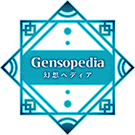Warriors' Village: Difference between revisions
More actions
m Text replacement - "}}↵}}" to "}} </div>" |
mNo edit summary |
||
| Line 3: | Line 3: | ||
|jpname=戦士の村 | |jpname=戦士の村 | ||
|roname=Senshi no Mura | |roname=Senshi no Mura | ||
|image=Warriors' Village | |image=Warriors' Village | ||
|nation = [[Scarlet Moon Empire]] ''(until 457)''<br>[[Toran Republic]] ''(457 onwards)'' | |nation = [[Scarlet Moon Empire]] ''(until 457)''<br>[[Toran Republic]] ''(457 onwards)'' | ||
|type= Village | |type= Village | ||
Revision as of 15:41, 9 December 2024
Warriors' Village (戦士の村, Senshi no Mura) is a village which appears in Suikoden. It is a strongly independent village which, befitting its name, carries a strong martial tradition.
Information
The Warriors' Village, located in the Lorimar region, was originally founded around SY 20 by Clift the Crusader following a conflict with the Holy Kingdom of Harmonia known retrospectively as the "Final Battle". Despite the name of that conflict, the village had been involved in several conflicts even before its participation in the Gate Rune War. While Zorak held pride in the history and traditions of the village, others held a different view, dismissing it as a backwater.
The village came under the supervision of the vampire Neclord during the Gate Rune War and the two soon came into conflict over Neclord's desire to take Tengaar of the Warriors' Village to be his wife. The intervention of the Toran Liberation Army and their defeat of Neclord led to the Warriors' Village allying with the Liberation Army for the remainder of the war.
Culture and traditions
According to the culture of the Warriors' Village, women do not fight even though at least one female native of the village (Tengaar) fought in the Gate Rune War. Male warriors, on the other hand, are only allowed to enter combat after they have proved themselves and named their sword.
The naming of a sword has great significance in the culture of the Warriors' Village, the name chosen usually being that of the warrior's beloved. It is not uncommon for warriors to make oaths by the name of their swords. When men are old enough, they traditionally depart the village on the Manhood Ceremony after which they are recognized as full-fledged adults and warriors.
Bandanas are commonly worn by the people of the village but there is no strong cultural reason for this.
Shops
| Armor Shop | |||||||
|---|---|---|---|---|---|---|---|
|
| ||||||
|
| ||||||
|
|||||||
| Item Shop | |||||||
|---|---|---|---|---|---|---|---|
|
| ||||||
|
| ||||||
|
| ||||||
Enemies
| Enemy Units | Name | LV | HP | Potch | Drop |
|---|---|---|---|---|---|
| Neclord | 55 | 10000 | 0 | N/A |
Other languages and releases
| Japanese kanji | 戦士の村 |
|---|---|
| Japanese hiragana | せんしのむら |
| Japanese rōmaji | Senshi no Mura |
| Chinese simplified (HDR) | 战士村 |
| Chinese traditional (HDR) | 戰士村 |
| Chinese pinyin | Zhànshì cūn |
| English | Warriors' Village |
|---|---|
| French | Village des guerriers |
| German | Kriegerdorf |
| Italian | Villaggio dei Guerrieri |
| Spanish | Villa de los Guerreros |
References
- Genso Suikoden Encyclopaedia (ISBN 4-575-16297-3), page 156
- Genso Suikoden Genso Shinsho Vol.7 (ISBN 4-7753-0044-X), page 116
- Genso Suikoden Kiwami Encyclopedia, pages 67-8




